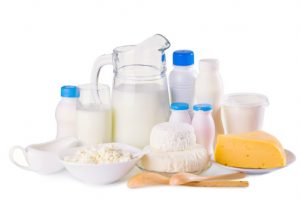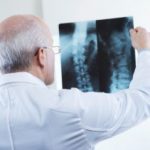 Calcium supplements found to be unsuccessful in improving bone density and reducing the risk of fractures, suggests new findings. Calcium has long been hailed as the essential mineral for bone strength. From the day we are born we start drinking our mother’s milk, which provides us with essential nutrients, such as calcium. As we grow, calcium works with vitamin D to increase bone strength and density, but after a certain age our bones can become frail and prone to fractures.
Calcium supplements found to be unsuccessful in improving bone density and reducing the risk of fractures, suggests new findings. Calcium has long been hailed as the essential mineral for bone strength. From the day we are born we start drinking our mother’s milk, which provides us with essential nutrients, such as calcium. As we grow, calcium works with vitamin D to increase bone strength and density, but after a certain age our bones can become frail and prone to fractures.
As a solution to age-related bone loss, many seniors will take calcium supplements to keep bones strong. However, new research suggests that we’re all just simply wasting our money by trying to increase our calcium intake. In fact, not only are calcium supplements not good for bone density, but they won’t lower fracture risks in seniors either.
Advertisement
Calcium does not significantly improve bone health in seniors
 It is recommended that seniors take 1,000 to 1,200 milligrams of calcium to maintain strong bones. The best sources of calcium are available in food, but many of us still choose supplement form, especially now that there is a rise in lactose intolerance and food allergies to dairy, which is normally our major source of calcium.
It is recommended that seniors take 1,000 to 1,200 milligrams of calcium to maintain strong bones. The best sources of calcium are available in food, but many of us still choose supplement form, especially now that there is a rise in lactose intolerance and food allergies to dairy, which is normally our major source of calcium.
According to the latest findings uncovered by researchers at the University of Auckland, seniors are only obtaining 700 to 900 milligrams of calcium – much below the recommended daily dose.
To achieve their results, researchers conducted a review of observational studies and randomized control trials. The studies and trials examined the increased intake of dietary or supplemental calcium, and how it impacted bone density and fracture risk in seniors.
Among the men and women who increased their intake of dietary and supplementary calcium, there was only a one to two percent increase in bone density, which researchers highlight as not being significant enough to reduce the risk of fractures.
In another part of the research, 44 cohort studies assessed the link between increased calcium from dietary and supplement form. The findings in this second study uncovered that an increase in calcium is not associated with a lower risk of fractures, and there is no evidence to support that increasing calcium intake will protect seniors against fractures.
Professor Karl Michaëlsson from the University of Sweden said, “Most will not benefit from increasing their [calcium] intakes and will be exposed instead to a higher risk of adverse events such as constipation, cardiovascular events, kidney stones or admission for acute gastrointestinal symptoms. The weight of evidence against such mass medication of older people is now compelling, and it is surely time to reconsider these controversial recommendations.”
Therefore, not only will an increase in calcium not prevent fractures, but it can actually lead to health complications.
Factors that affect bone density and strength
 Aside from aging, there are other factors contributing to bone loss and increasing the risk of fractures. It’s important to note that bone fractures in seniors are quite serious. Healing becomes more difficult with age and injury impedes on their daily life, which can lead seniors to depression.
Aside from aging, there are other factors contributing to bone loss and increasing the risk of fractures. It’s important to note that bone fractures in seniors are quite serious. Healing becomes more difficult with age and injury impedes on their daily life, which can lead seniors to depression.
Factors that affect bone density and strength include:
Mental health: One study compared bone density between women with and without depression. What they found was the women with depression had lower bone density compared to their counterparts without depression. Furthermore, the same results were seen in younger women who had yet to experience menopause – bone density loss is common post-menopause. The younger women with depression had lower bone density than those who did not. Hormones which are released with depression can negatively impact bone density, thus breaking it down.
Hormones: Bone loss is commonly seen in women experiencing menopause and post-menopause, when there is a dramatic shift in hormones. Estrogen drops the most during menopause, which is a necessary hormone for bone strength in women. A drop in estrogen has been found to cause a drop in bone density.
Physical activity: Exercising actually leads to stronger bones, therefore a lack of physical activity can lead to bone loss. When we exercise, minor breaks occur in the bone that when healed result in stronger bones. Furthermore, bone cells are created which generate stronger bones. When we don’t exercise, new cells are not formed, leading to bone loss.
Tobacco and alcohol use: Studies have found that tobacco and alcohol can reduce the bones’ ability to absorb calcium and also lead to weaker bones.
Certain Medications: Studies show long-term use of corticosteroid medications can cause bone loss. Aromatase inhibitors, selective serotonin reuptake inhibitors and some anti-seizure medications can also cause bone loss.
Other tips for building strong bones
 Although the new research suggests calcium supplements won’t help you much for strong bones, there are other ways you can build bone density and reduce your risk of fractures.
Although the new research suggests calcium supplements won’t help you much for strong bones, there are other ways you can build bone density and reduce your risk of fractures.
Know your score: Knowing your bone density score, or T-score, can help you better understand where you are in regards to bone density. By knowing your score you can start to incorporate lifestyle habits to boost bone density or take better precautions to prevent fractures.
Don’t smoke and limit alcohol: As studies have shown that smoking and alcohol consumption can minimize calcium absorption and weaken bones, it’s best to not smoke and to minimize alcohol consumption.
Eat meat in moderation: Eating red meat diminishes calcium in the body as it is used to break it down. On the other hand, protein deficiencies can contribute to bone loss. The best advice is to eat meat in moderation, and ensure you’re getting adequate protein from both plant and meat sources.
Look into your history: If you are unsure how your bones will age, look no further than your parents. Genetics, too, plays a roll in bone loss, so if your parents suffered with frail bones, it will probably happen to you as well.
Minimize sodium: Excess sodium leaches calcium from bones and expels it through urine, this according to the Cleveland Clinic. A low sodium diet can help ensure your bones stay strong.
Advertisement
Stay active: As mentioned, exercise is necessary to create cells which boost bone density. Exercises that put resistance and weight onto your bones are best. Try running, lifting-weights or even a sport like tennis.
Simple tips to protect yourself from fractures
If you do have weaker bones and have experienced bone loss, it’s best you try to prevent falls as much as possible. Here are some tips to help reduce your risk of falls.
- Always hold onto hand rails.
- Secure rugs so they won’t slip.
- Ensure hallways are well lit at night.
- Wear shoes that are anti-slip.
- Install a handle bar in your shower.
- Remove clutter from rooms and hallways.
- Use a no-skid mat in the shower.
